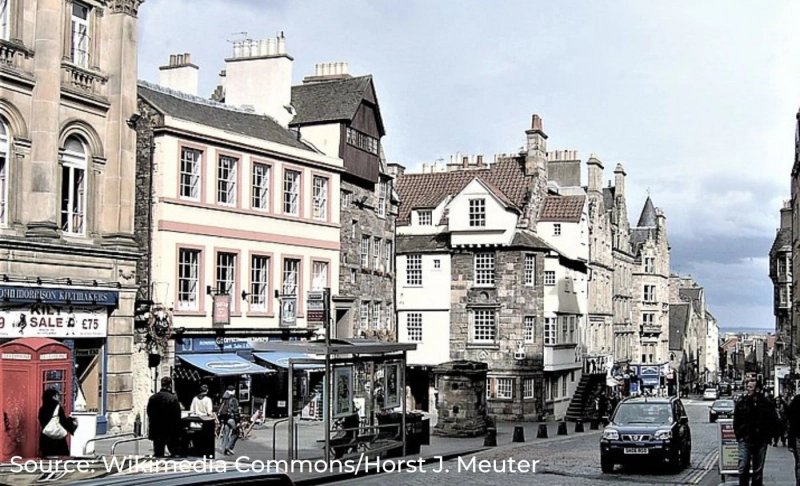By: Nikita Kochhar
February 3 2023

There is no evidence in the policy documents to support claims of imprisoning people in their districts.
Context
A post being circulated on Facebook claims that the Scottish government plans to imprison people in their homes and restrict them to their respective districts as a part of a new climate policy. The post adds that this is a part of the government's "20-minute neighborhood program," where city dwellers won't be allowed to leave their districts more than once or twice a week.
The post carries an image of a news headline: "Scotland aims to cut car use by creating '20-minute neighborhoods' in net zero push." The post's caption claims these 15 or 20-minute cities mean that people are not allowed to leave their districts more than one or two days a week. The post, uploaded on January 15, 2023, has been shared by over 500 users. Similarly, a Twitter user shared a picture of a poster with images of CCTV cameras and a fence, along with text that read, "Don't be fooled. 20-minute neighborhood. Prison by another name."
However, the claim is false. The policy aims to provide people with basic amenities within a 20-minute radius of their house, not imprison them within their districts.
In Fact
The screenshot of the headline in the Facebook post comes from a news report published by a U.K. newspaper, Big Issue, and talks about the new initiative in Scotland which aims to cut the use of private cars by ensuring that all services are available in a 20-minute radius from a person's house. The report quotes Tom Arthur, Minister for Public Finance, Planning and Community Wealth, saying that the recently approved planning reforms aim to create "20-minute neighborhoods" to "prioritize tackling the climate crisis and reaching net zero."
The "20-minute neighborhood" policy is a part of the Scottish government's National Planning Framework (NPF) 4, the fourth edition of a long-term plan for Scotland that sets out guidelines for development and infrastructure. Parliament approved the revised draft of the document on January 11, 2023. It is scheduled to be adopted and published by Scottish Ministers on February 13, 2023. The policy aims to create "connected and compact neighborhoods where people can meet most of their daily needs within a reasonable distance of their home, preferably by walking, wheeling or cycling or using sustainable transport options." The revised draft NPF4 also notes: "The frequency of urban car use can be reduced by improving local liveability and improved access to facilities, helping to reduce emissions and air pollution."
A notice recently published by Glasgow City Council notes that the ultimate aim of the 20-minute neighborhood policy is to reduce the number of vehicle journeys within the city by giving residents access to essential services within 20 minutes by active travel or public transport. This will help reduce carbon emissions from vehicle usage.
No public documents about the policy mention anything akin to limiting the number of times a person can leave their district or imprisoning people within their local areas. A Scottish Government spokesperson further confirmed to Reuters that such claims are "completely inaccurate and untrue." Logically has also reached out to the Scottish government for clarification regarding these claims. This story will be updated as and when we receive a response.
The Verdict
From the above evidence, it is clear that the "20-minute neighborhood policy" aims at easing the lives of residents and not caging them, as the viral post claims. Therefore, we are marking this claim as false.